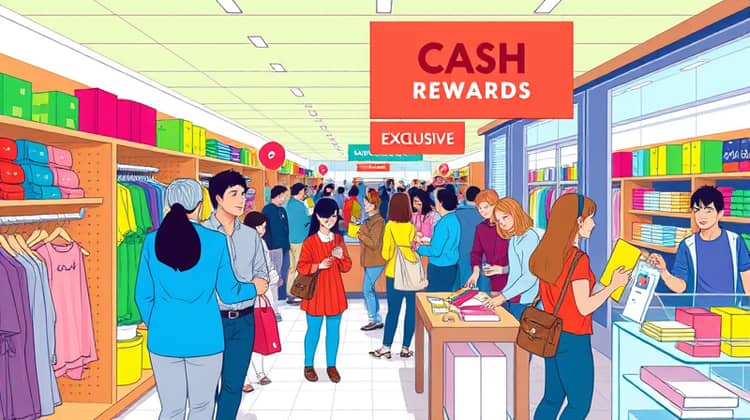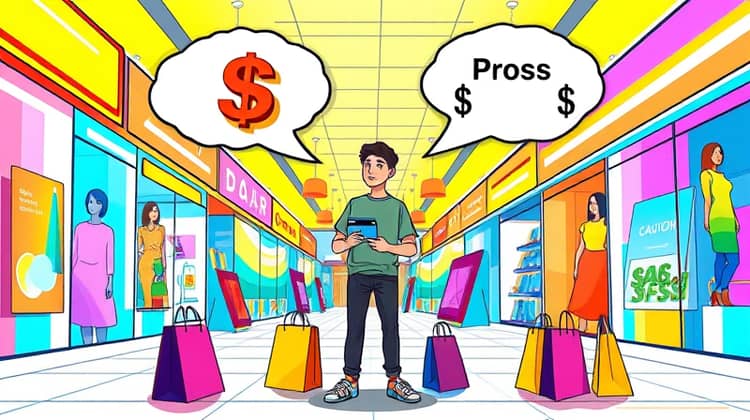In today's consumer-driven world, store credit cards have become an increasingly popular option among shoppers. They offer benefits that can enhance your shopping experience and provide financial flexibility. However, they also come with downsides that consumers should carefully consider before signing up.
This article will explore the pros and cons of store credit cards, giving you a comprehensive understanding of what they entail. By the end, you will have the information needed to determine whether a store credit card fits your financial lifestyle and shopping habits.
Understanding the intricacies of store credit cards can help you make an informed decision. Let's delve into the details of what these cards are and evaluate both their advantages and disadvantages.
What Is a Store Credit Card?

A store credit card is a type of credit card issued by a specific retailer or chain that can only be used for purchases at that particular store. Unlike traditional credit cards which can be used in multiple locations, store cards aim to foster brand loyalty by offering various perks to the cardholders.
These perks typically include discounts, rewards points, or special financing options that are often not available to customers who do not hold the card. Most store credit cards also offer initial bonuses or discount incentives upon signing up, making them very appealing to frequent shoppers.
However, it is crucial to understand the fine print associated with these cards, including interest rates, fees, and the impact on your credit score, to ensure they align with your financial goals.
Pros of Store Credit Cards

1. Discounts and Rewards
One of the most attractive features of store credit cards is the discounts and rewards that cardholders enjoy. These cards often offer exclusive deals, cash back, or points for every dollar spent at the store. Over time, the rewards can accumulate significantly, especially for those who frequently shop at the same retailer.
Additionally, many stores provide special promotional offers for cardholders, such as early access to sales or special events. This incentivizes card use and enhances the overall shopping experience for loyal customers.
- Cash back rewards on purchases
- Exclusive discounts during sales
- Bonus rewards on special promotional periods
- Offers like 'X% off your first purchase'
2. Special Financing Offers
Store credit cards often come with special financing offers, which can be highly beneficial for larger purchases. These might include deferred interest promotions, allowing purchases to be paid off over time without interest charged if paid in full within a specified time frame.
This can make it easier for consumers to manage larger expenses, especially on items such as appliances or furniture, without straining their budget. However, it is crucial to ensure that you understand the terms of these offers clearly to avoid unexpected charges.
- Deferred interest promotions
- Longer payment terms without interest
- Occasional no-interest financing offers
- Flexibility in repayment options
3. Easier Approval
Securing a store credit card is generally easier than obtaining a traditional credit card. Many retailers have specific criteria and may approve customers with lower credit scores compared to standard credit cards.
This can be beneficial for individuals looking to build their credit history or those who have faced challenges obtaining credit in the past. However, while approval may be easier, this does not always guarantee favorable terms, such as interest rates and credit limits.
- Lower credit requirements for approval
- Ideal for building or rebuilding credit
- Quicker application processes at checkout
- Provides introductory offers even for newer credit users
4. Building Credit
Using a store credit card responsibly can be an effective way to build your credit. Regular payments made on time will positively impact your credit score, helping to establish a solid credit history.
This may open up further opportunities for credit in the future, such as loans or traditional credit cards with better terms as your credit profile improves.
- On-time payments boost credit history
- Diverse types of credit can improve your score
- Potential for credit limit increases with good usage
- Helpful for new borrowers starting their credit journey
Cons of Store Credit Cards

While store credit cards offer several benefits, they also come with notable drawbacks that potential cardholders should consider. Depending on individual financial circumstances, these negatives could outweigh the advantages the cards offer.
Understanding these cons can help consumers make an informed decision about whether a store credit card can serve their needs or not. Below are the primary concerns related to store credit cards.
1. High Interest Rates
One of the primary drawbacks of store credit cards is that they often come with high-interest rates, which can lead to significant financial strain if balances are not paid off promptly. In fact, many store cards have interest rates that are significantly higher than those associated with standard credit cards. Over time, this can result in steep carrying costs for consumers if they carry a balance month to month.
Additionally, if cardholders take advantage of special financing offers but do not pay off the balance within the allotted time frame, they may face backdated interest charges that can accumulate quickly. It's essential to read and understand the terms of the card, including the interest rates, to avoid surprises.
Many customers can fall into a trap of thinking they are getting a good deal, only to find out later that high interest has negated the benefits of any rewards or discounts they might have received.
Comparing interest rates before choosing a store card is essential to help safeguard against high costs that can diminish any advantages of card ownership.
- Significantly higher interest rates compared to traditional cards
- Potential for backdated interest on promotional offers
- Encourages high balances that can accumulate debt
- Long-term costs may exceed the perceived benefits
2. Limited Use
Because store credit cards are typically only usable at the issuing store or specific affiliated retailers, their usability is limited. This can be a drawback for those looking for a card that offers more versatile spending options across various locations or for different types of purchases.
If you frequently shop at multiple retailers, relying solely on a store credit card may not provide the most value as it limits purchasing power.
- Restricted usage at certain stores only
- Not applicable for general expenses outside the store
- Less flexibility for travel or emergency purchases
- Cannot be used for cash withdrawals
3. Low Credit Limits
Many store credit cards come with low credit limits, which can limit spending capacity and affect your credit utilization ratio. This is particularly critical because a lower credit utilization ratio positively impacts your credit score.
Additionally, low credit limits might necessitate frequent payments to keep your balances low, which can be inconvenient and impractical for larger purchase needs.
- May require more frequent payments
- Can affect overall credit score due to low limits
- Limits on significant purchases
- Harder to manage if seeking to build credit
4. Impact on Credit Score
While using store credit cards responsibly can help build credit, mismanagement can negatively impact your credit score. Late payments, high utilization, or overusing credit can lead to potential damage.
Moreover, having too many credit inquiries or accounts can further hurt your credit score, so prospective cardholders should consider these factors when deciding whether to apply.
- Late payments can damage credit score
- Increased credit inquiries may hurt overall score
- High utilization leads to negative credit impact
- May complicate managing multiple credit lines
How to Decide If a Store Credit Card Is Right for You

Ultimately, the decision to obtain a store credit card depends on your shopping habits, financial situation, and ability to manage credit wisely. Assess the benefits versus drawbacks to see if their rewards will offset the potential downsides.
Bottom Line

Store credit cards can provide valuable benefits, including rewards, discounts, and the potential to improve your credit, making them an appealing option for many shoppers. However, it's essential to approach them with caution, as their high-interest rates and limited usability pose significant risks.
To make the most informed decision, weigh the pros and cons carefully. Ensure that the card aligns with your shopping habits and financial capabilities.
If you are disciplined with payments and shop frequently at a store that offers solid perks, a store credit card may be worth considering. Conversely, for those who are prone to overspending, it may be more prudent to avoid these cards altogether.
In conclusion, understanding your financial habits, evaluating the store’s offerings, and weighing both sides will lead you to make the right choice regarding store credit cards.














